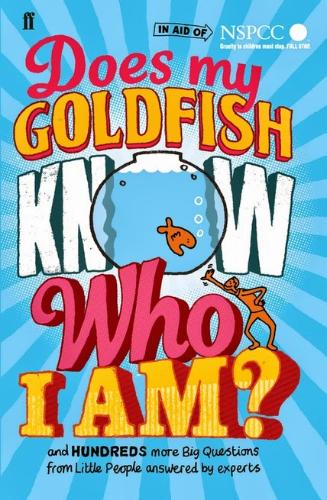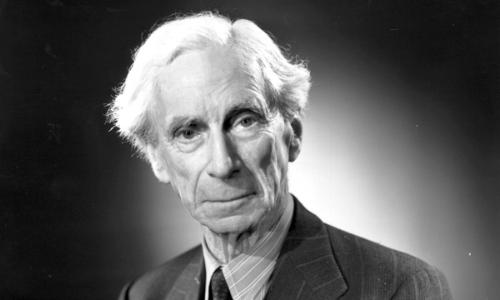Brain Pickings (blog of Maria Popova)
|
|
This post was updated on .
http://www.brainpickings.org
about Brain Pickings is the brain child of Maria Popova, a cultural curator and curious mind at large, who also writes for Wired UK, The Atlantic and Design Observer, among others. She gets occasional help from a handful of talented contributors. "Brain Pickings is a human-powered discovery engine for interestingness, culling and curating cross-disciplinary curiosity-quenchers, and separating the signal from the noise to bring you things you didn't know you were interested in until you are." Because creativity, after all, is a combinatorial force. It’s our ability to tap into the mental pool of resources — ideas, insights, knowledge, inspiration — that we’ve accumulated over the years just by being present and alive and awake to the world, and to combine them in extraordinary new ways. In order for us to truly create and contribute to the world, we have to be able to connect countless dots, to cross-pollinate ideas from a wealth of disciplines, to combine and recombine these ideas and build new ideas — like LEGOs. The more of these building blocks we have, and the more diverse their shapes and colors, the more interesting our creations will become. Brain Pickings is your LEGO treasure chest, full of pieces across art, design, science, technology, philosophy, history, politics, psychology, sociology, ecology, anthropology, you-name-itology. Pieces that enrich your mental pool of resources and empower you to combine them into original concepts that are stronger, smarter, richer, deeper and more impactful — a modest, curiosity-driven exercise in vision- and mind-expansion. Please enjoy. |
|
|
This post was updated on .
The Science of "Something" and "Nothing"
by Maria Popova 18 January 2012 "there is no such thing as 'nothing'" "Everything we see is just one percent of cosmic pollution in universe dominated by dark matter and dark energy. You could get rid of all the things in the night sky — the stars, the galaxies, the planets, everything — and the universe would be largely the same." 「有」與「無」的科學。 哲學一直以來思考著一個大問題:為何「有」而非「無」? 理論物理學家 Lawrence Krauss 提出,「無」並不存在。 他說:「一切我們所看見的,只是宇宙中佔百份一的污染物,其餘的是暗物質與暗能量。移走所有恆星、星系、行星,一切一切,宇宙仍然差不多沒有絲毫改變。」 愈找尋,愈發現,愈領悟到宇宙不可能是為著人而被創造的。宇宙絕大部份是暗黑的,與人無關。宇宙太浩瀚,人太渺小,宇宙對人大得無意義,人對宇宙小得無意義。意識、知覺只是宇宙龐大身軀上的一點微塵上的七十億粒病毒的小玩意兒,無關痛癢,毫不起眼,毫無意義。當有一天,這群病毒滅了種,宇宙也毫不知情。宇宙無意識、無知覺、無意義。 |
|
|
This post was updated on .
In reply to this post by Alex
BBC's The Romantics: The Birth of the Individual in Modern Society
by Maria Popova 28 June 2011 "What The French Revolution has to do with the love of nature and the birth of the modern individual." "Eternity explores the search for meaning in a world without God, following the revolutions of the 18th century, which forced people to make sense of their new reality outside the sanctions of the Church." 法國大革命的精神孕育了浪漫主義,向啟蒙運動和工業革命反叛,重尋解放、自主、情感、直覺、想象、美學、藝術、詩。現代世界中的個人誕生。雖然是對啟蒙運動的反動,她沒有重投上帝的懷抱,繼續掙脫教會的綑鎖,離棄上帝,在無神的自然世界中尋找意義。如果詩是新的宗教,詩人便是新的上帝,繼承創造意義的功夫。 |
|
|
In reply to this post by Alex
The 10 Best Psychology and Philosophy Books of 2012
by Maria Popova http://www.brainpickings.org/index.php/2012/12/04/best-psychology-philosophy-books-2012/ 1 This Will Make You Smarter: New Scientific Concepts to Improve Your Thinking by John Brockman What scientific concept would improve everybody’s cognitive toolkit? This is the question John Brockman, publisher of Edge.org, posed to the world’s most influential thinkers. Their visionary answers flow from the frontiers of psychology, philosophy, economics, physics, sociology, and more. Surprising and enlightening, these insights will revolutionize the way you think about yourself and the world. |
|
|
This post was updated on .
In reply to this post by Alex
Neil deGrasse Tyson on Your Ego and the Cosmic Perspective
http://www.brainpickings.org/index.php/2013/06/17/neil-degrasse-tyson-ego-cosmic-perspective (YouTube 2:39min) There is hardly a greater cosmic sage of our age than astrophysicist Neil deGrasse Tyson. In this sublime, characteristically eloquent short clip from BigThink, he echoes Ptolemy’s awe as he teases apart the misguided tension between our human ego and the immensity of the universe: "There’s something about the cosmic perspective, which for some people is enlightening and for other people it’s terrifying. For those who are terrified by it, they’re here on earth and they have a certain self-identity, and then they learn that earth is tiny and we’re in this void of interplanetary space and then there’s a star that we call the Sun and that’s kind of average and there’s a hundred billion other stars in a galaxy. And our galaxy, the Milky Way, is one of 50 or 100 billion other galaxies in the universe. And with every step, every window that modern astrophysics has opened to our mind, the person who wants to feel like they’re the center of everything ends up shrinking. And for some people they might even find it depressing, I assert that if you were depressed after learning and being exposed to the perspective, you started your day with an unjustifiably large ego. You thought more highly of yourself than in fact the circumstances deserved. So here’s what you do: You say, “I have no ego at all.” Let’s start that way. “I have no ego, no cause to puff myself up.” Now let’s learn about the cosmic perspective. Yeah, we’re on a planet that’s orbiting a star, and a star is an energy source and it’s giving us energy, and we’re feeling this energy, and life is enabled by this energy in this star. And by the way, there’s a hundred billion other stars that have other planets. There might be other life out there, could be like us. It’s probably not like us, but whatever it is, it’d be fascinating to find out who it is. Can we talk to them? Can we not? Are they more advanced? Are they less advanced? By the way, the atoms of our body are traceable to what stars do. And all you can do is sit back and bask in your relevance to the cosmos. So those who see the cosmic perspective as a depressing outlook, they really need to reassess how they think about the world. Because when I look up in the universe, I know I’m small, but I’m also big. I’m big because I’m connected to the universe and the universe is connected to me." Alex's comment: This is Religious Naturalism (Spiritual Naturalism). |
|
|
In reply to this post by Alex
Does My Goldfish Know Who I Am? Scientists and Writers Answer Little Kids’ Big Questions about How Life Works
book by Gemma Elwin Harris http://www.brainpickings.org/index.php/2013/11/26/does-my-goldfish-know-who-i-am/  "Does My Goldfish Know Who I Am? is absolutely wonderful in its entirety — a curiosity quencher for all ages and an especially enchanting primer bridging science and everyday life for young minds." "Does My Goldfish Know Who I Am? is absolutely wonderful in its entirety — a curiosity quencher for all ages and an especially enchanting primer bridging science and everyday life for young minds."
|
|
|
In reply to this post by Alex
Bertrand Russell on Immortality, Why Religion Exists, and What “The Good Life” Really Means
Maria Popova 3 Feb 2015 http://www.brainpickings.org/2015/02/03/bertrand-russell-immortality-good-life/ 
|
«
Return to Philosophy, Theology, Religion 哲學、神學、宗教
|
1 view|%1 views
| Free forum by Nabble | Edit this page |

